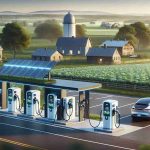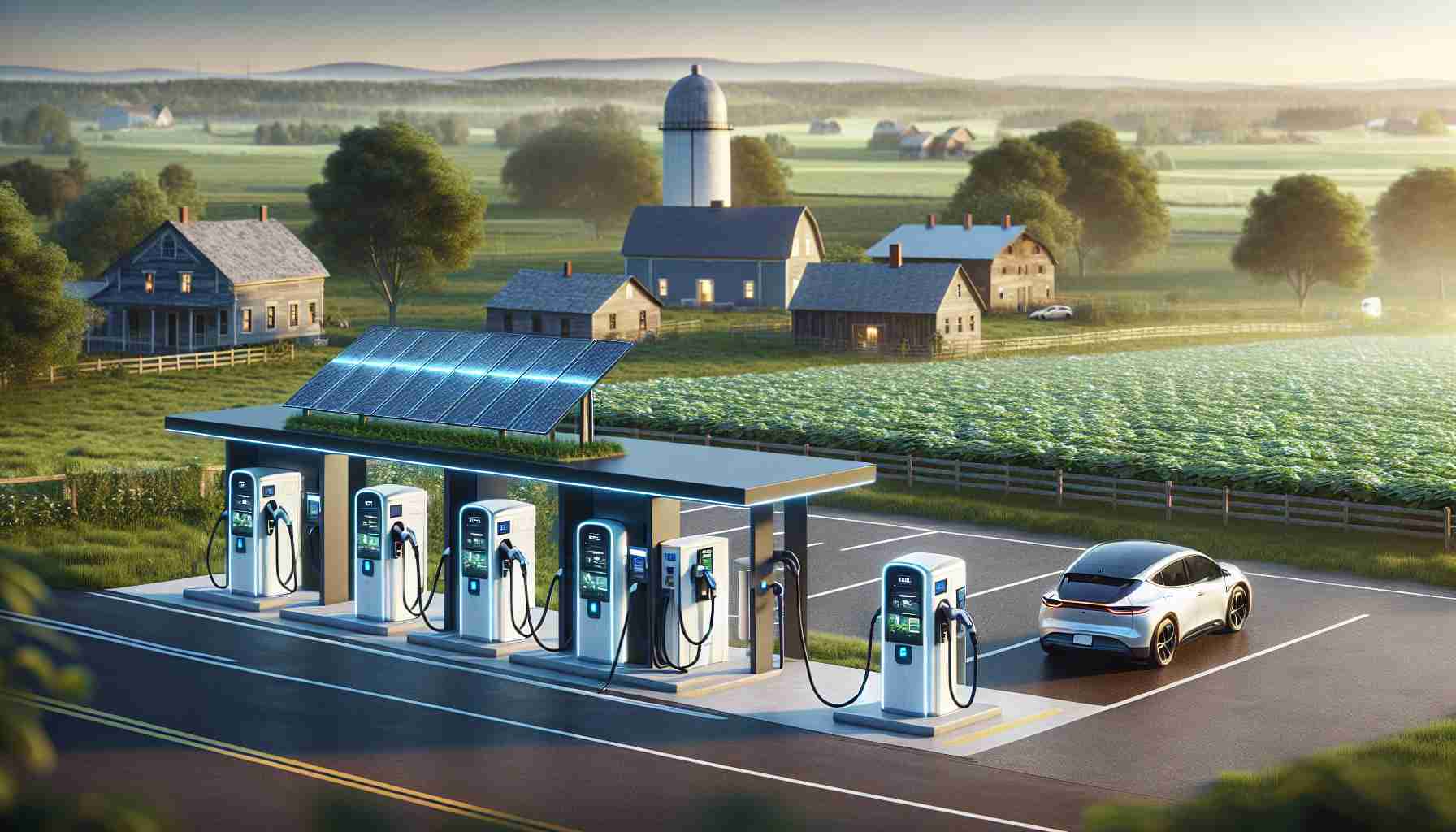A Cutting-Edge EV Charging Hub Unveiled in Deerfield
A state-of-the-art EV charging hub has been unveiled in Deerfield, Massachusetts, marking a significant milestone in the region’s sustainable transportation efforts. Located at 59 North Main Street in South Deerfield, this innovative facility boasts the Eastern US’s first DC fast chargers, a total of four ports, and four Level 2 chargers.
Pioneering Sustainable Transportation Initiatives in Franklin County
Funded by a substantial $2.46 million grant from the Charging and Fueling Infrastructure (CFI) Program, these cutting-edge charging stations cater to a wide range of users, including local residents, visitors, and commercial vehicles servicing the region’s businesses. Situated conveniently near Interstate 91 in Franklin County, the hub aims to encourage the adoption of electric vehicles while promoting eco-friendly commuting options.
Fostering Resilience and Innovation in Rural Communities
In addition to providing top-notch charging facilities, the Deerfield project incorporates environmentally conscious design elements to mitigate climate change effects, such as flooding. By integrating permeable asphalt, rain gardens, and green spaces, the hub sets a new standard for sustainable infrastructure that not only supports local commerce but also enhances the community’s resilience against natural disasters.
A Blueprint for Future Sustainability Projects
Gabe Klein, the executive director of the Joint Office of Energy and Transportation, lauds the Deerfield initiative as a model for future sustainability projects. By creating multi-modal charging hubs, the town is paving the way for more inclusive and environmentally friendly transportation options in rural and disadvantaged communities.
Transforming EV Infrastructure Across the Nation
The success of Deerfield’s EV charging hub exemplifies the transformative impact of the CFI Grant Program, spearheaded by the Biden-Harris administration. With over $1 billion allocated to nearly 100 projects nationwide, this program is revolutionizing the EV charging network and making electric vehicle ownership a practical and convenient reality for communities across the US.
Empowering Rural Massachusetts: Revolutionizing EV Charging Infrastructure Beyond Deerfield
As the electrification of transportation gains momentum in rural Massachusetts, one question arises: How can we ensure equitable access to EV charging infrastructure across the state’s remote areas? While the unveiling of the cutting-edge EV charging hub in Deerfield is a significant step forward, it’s essential to consider the broader landscape of rural communities and address key challenges to widespread adoption.
One pressing issue is the need for scalability and standardization in EV charging networks. How can we create a seamless experience for EV drivers traveling beyond established hubs like Deerfield? Implementing standardized protocols and interoperable systems can streamline the charging process and encourage more drivers to make the switch to electric vehicles.
Moreover, how do we overcome the obstacle of limited grid capacity in rural areas? Scaling up EV infrastructure demands careful planning to ensure that charging stations can meet the growing demand without straining local power resources. Investing in smart grid technologies and energy storage solutions can help optimize charging patterns and minimize the impact on the grid.
Advantages of expanding EV charging infrastructure in rural Massachusetts are clear. By embracing sustainable transportation initiatives, communities can reduce greenhouse gas emissions, improve air quality, and support economic development through job creation in the clean energy sector. Additionally, promoting EV adoption can enhance energy security and reduce dependence on fossil fuels, contributing to a more resilient and sustainable future.
However, along with these benefits come challenges and controversies. Some critics argue that the high cost of installing and maintaining EV charging stations in rural areas may not always justify the return on investment, especially in sparsely populated regions. Balancing the need for widespread access with the financial viability of infrastructure projects remains a complex issue that requires careful consideration.
To navigate these complexities and drive meaningful change, collaboration between government agencies, private stakeholders, and local communities is essential. By fostering partnerships and leveraging available resources, rural Massachusetts can establish a comprehensive and interconnected EV charging network that serves the needs of residents, businesses, and travelers alike.
Related links:
– Massachusetts Official Website
– U.S. Department of Energy
 Revolutionizing EV Charging Infrastructure in Rural Massachusetts
Revolutionizing EV Charging Infrastructure in Rural Massachusetts  Wisconsin Introduces New Tax on Alternative Energy Users
Wisconsin Introduces New Tax on Alternative Energy Users  Revolutionizing Transportation in Arizona
Revolutionizing Transportation in Arizona  New Urban Renewal Project Transforms Downtown Landscape
New Urban Renewal Project Transforms Downtown Landscape  The Future of Electric Vehicles in Maine
The Future of Electric Vehicles in Maine  Revolutionizing Transportation: The Rise of Aerial Vehicles
Revolutionizing Transportation: The Rise of Aerial Vehicles  Exploring the Future of Sustainable Driving
Exploring the Future of Sustainable Driving  Delays in Submarine Production Impact Navy’s Strategic Plans
Delays in Submarine Production Impact Navy’s Strategic Plans  Young Innovator Takes Flight with Homemade eVTOL
Young Innovator Takes Flight with Homemade eVTOL 